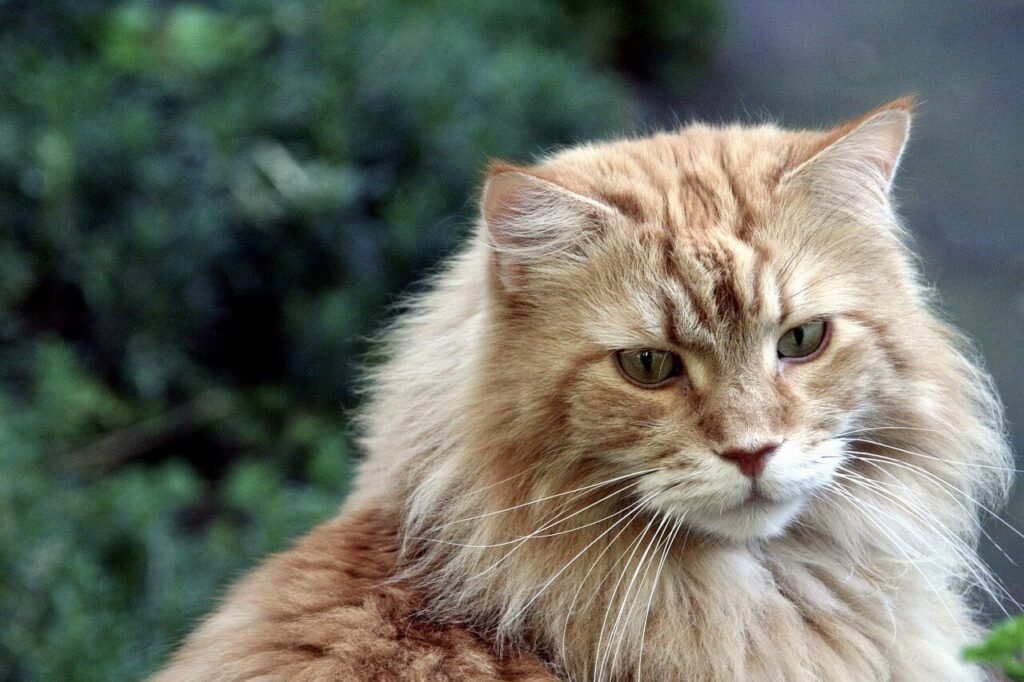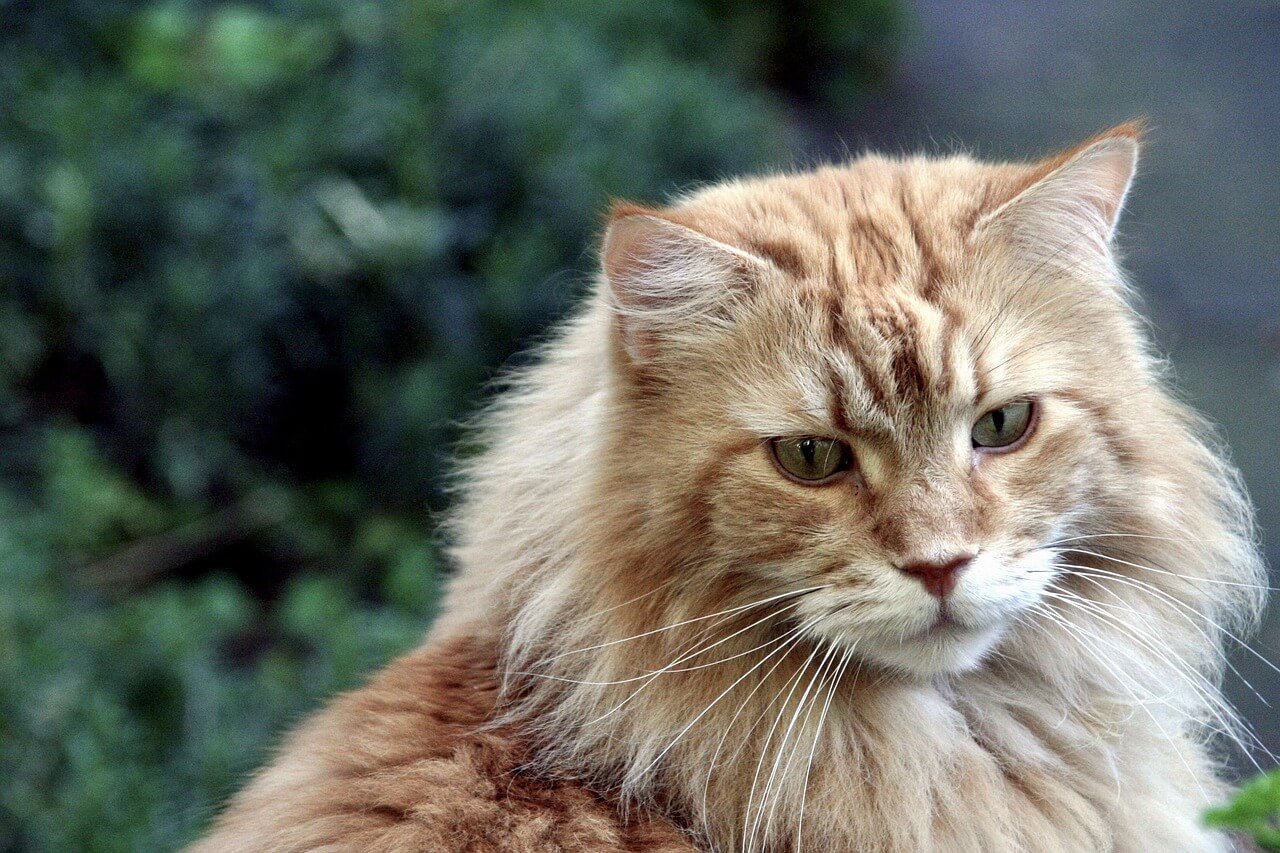Case of Heavy Breathing in Cats
Heavy breathing in cats, also known as labored or abnormal respiration, can be a cause for concern for any pet owner. While occasional panting after play or stress is normal, persistent or unusual breathing patterns may indicate an underlying health issue. Understanding the signs, causes, and steps to take when your cat exhibits heavy breathing is crucial for ensuring their well-being. In this blog post, we’ll explore everything you need to know about this condition, from identifying symptoms to seeking professional help. By staying informed, you can provide your feline friend with the care they need to thrive.
Common Causes of Heavy Breathing in Cats
Heavy breathing in cats can stem from a variety of causes, ranging from minor issues to serious medical conditions. Identifying the root cause is essential for determining the appropriate treatment.
Respiratory Infections:
Viral or bacterial infections, such as feline herpesvirus or pneumonia, can lead to inflammation and difficulty breathing.Heart Disease:
Conditions like hypertrophic cardiomyopathy (HCM) can affect the heart’s ability to pump blood, leading to fluid buildup in the lungs.Asthma or Allergies:
Feline asthma often causes wheezing and labored breathing due to constricted airways triggered by allergens.Obesity:
Overweight cats may struggle with heavy breathing due to the extra strain on their respiratory system.Trauma or Injury:
Accidents or injuries can damage the chest cavity or lungs, resulting in abnormal breathing patterns.
Understanding these potential causes helps you recognize when heavy breathing requires immediate attention and when it might resolve on its own.

Signs That Your Cat Is Experiencing Heavy Breathing
Detecting heavy breathing early can make a significant difference in your cat’s prognosis. Look out for these physical and behavioral signs that may indicate respiratory distress.
Rapid or Shallow Breathing:
A cat taking more than 30-40 breaths per minute at rest is a red flag for potential respiratory issues.Open-Mouthed Breathing:
Unlike dogs, cats rarely pant with their mouths open. If your cat does this, it could signal severe distress.Noisy Breathing:
Wheezing, crackling, or raspy sounds during inhalation or exhalation may point to airway obstruction or fluid in the lungs.Blue Gums or Tongue:
Cyanosis, or bluish discoloration of the gums, indicates a lack of oxygen and requires emergency care.Lethargy or Weakness:
Cats struggling to breathe may become unusually tired or uninterested in their surroundings.
Recognizing these symptoms promptly allows you to seek veterinary assistance before the condition worsens.
Check this guide 👉Why Does My Cat Breathe Loud? Best 7 Health Tips!
Check this guide 👉Cat Breath Smells Like Rotten Meat: Best 7 Expert Tips!
Check this guide 👉Is Babys Breath Toxic to Cats? Best 7 Health Tips!
Symptoms of Heavy Breathing | Possible Underlying Causes |
|---|---|
Rapid or shallow breathing | Respiratory infections, heart disease |
Open-mouthed panting | Heatstroke, asthma, trauma |
Wheezing or crackling noises | Asthma, allergies, fluid in lungs |
Blue gums or tongue | Lack of oxygen, severe respiratory distress |
Lethargy or weakness | Heart failure, systemic illness |
Steps to Take if Your Cat Has Heavy Breathing
If you notice your cat exhibiting signs of heavy breathing, acting quickly and calmly is key to ensuring their safety. Follow these steps to address the situation effectively.
Monitor Their Breathing Rate:
Count how many breaths your cat takes per minute while they’re resting. Anything over 40 breaths per minute warrants attention.Check for Immediate Dangers:
Ensure there are no obvious hazards, such as choking objects or toxic substances, that could be causing respiratory distress.Keep Them Calm and Comfortable:
Minimize stress by placing your cat in a quiet, cool area away from loud noises or activity.Contact Your Veterinarian:
Call your vet immediately to describe the symptoms and receive guidance on whether an emergency visit is necessary.Avoid Delaying Treatment:
Even if symptoms seem mild, untreated heavy breathing can escalate quickly, so don’t hesitate to seek professional advice.
Taking these steps ensures your cat receives timely care and reduces the risk of complications.
Preventive Measures to Reduce the Risk of Heavy Breathing
While not all cases of heavy breathing can be prevented, certain measures can help minimize the likelihood of respiratory issues in cats.
Maintain a Healthy Weight:
Obesity puts additional strain on the respiratory system, so ensure your cat stays at a healthy weight through proper diet and exercise.Provide a Smoke-Free Environment:
Secondhand smoke can irritate your cat’s lungs and increase the risk of asthma or other respiratory problems.Regular Vet Check-Ups:
Routine examinations allow your vet to detect early signs of heart or lung conditions before they become severe.Minimize Stressful Situations:
Avoid exposing your cat to excessive noise, unfamiliar environments, or sudden changes that could trigger anxiety-related breathing issues.Use Air Purifiers:
Keeping indoor air clean reduces allergens and irritants that could contribute to respiratory distress.
By implementing these preventive strategies, you can help safeguard your cat’s respiratory health and overall well-being.
Common Misconceptions About Heavy Breathing
Many cat owners misunderstand the nature of heavy breathing, which can delay proper treatment. Addressing these misconceptions helps foster better awareness and quicker responses.
“Cats Always Pant Like Dogs After Exercise.”
Unlike dogs, panting in cats is rare and usually signals overheating or respiratory distress.“Heavy Breathing Is Just a Sign of Aging.”
While older cats may experience breathing issues, heavy breathing should never be dismissed as a normal part of aging.“It’s Fine to Wait and See If Symptoms Improve.”
Delaying treatment can worsen conditions like asthma or heart disease, making early intervention critical.“Indoor Cats Don’t Get Respiratory Problems.”
Indoor cats are still susceptible to allergies, infections, and heart conditions that affect breathing.“Only Sick Cats Have Heavy Breathing.”
Stress, heat, or injury can also cause temporary heavy breathing, though it still requires monitoring.
Clearing up these myths ensures cat owners respond appropriately to their pet’s needs.
How to Support Your Cat During Recovery
If your cat has been diagnosed with a respiratory condition, providing supportive care at home can aid their recovery and improve their quality of life.
Administer Medications as Directed:
Follow your vet’s instructions carefully when giving medications like antibiotics or bronchodilators.Create a Stress-Free Environment:
Reduce noise and limit interactions with other pets to help your cat rest peacefully.Encourage Gentle Activity:
Light play sessions can prevent stiffness without overexerting your cat’s lungs.Monitor Progress Regularly:
Keep track of improvements or worsening symptoms to report back to your vet.Offer Nutritious Meals:
A balanced diet supports immune function and aids in healing respiratory tissues.
With consistent care, your cat can recover more comfortably and regain their vitality.
When to Seek Emergency Veterinary Care
Knowing when to seek urgent help can save your cat’s life in cases of severe respiratory distress. These scenarios require immediate attention.
Difficulty Standing or Walking:
Weakness or collapse indicates advanced respiratory or cardiovascular issues.Persistent Blue Gums or Tongue:
This is a clear sign of oxygen deprivation and demands emergency intervention.Severe Coughing or Choking Sounds:
These symptoms may suggest a blocked airway or fluid in the lungs.Sudden Onset of Labored Breathing:
Acute respiratory distress can escalate rapidly, necessitating immediate care.Unresponsiveness or Loss of Consciousness:
If your cat becomes unresponsive, seek emergency help without delay.
Acting swiftly in these situations ensures your cat receives the life-saving treatment they need.
Frequently Asked Questions About Heavy Breathing in Cats
Is heavy breathing normal for cats?
Occasional heavy breathing after play or excitement is normal, but consistent or labored breathing is not and should be evaluated by a vet.
Can stress cause heavy breathing in cats?
Yes, stress or anxiety can lead to changes in breathing patterns, though other factors must also be ruled out.
How do I know if my cat has asthma?
Look for symptoms like coughing, wheezing, or difficulty breathing. A vet can confirm with diagnostic tests.
Should I worry if my cat pants after exercise?
Mild panting is okay, but prolonged or frequent panting is unusual for cats and warrants investigation.
What should I do if my cat stops breathing?
Perform CPR if trained, and rush your cat to the nearest emergency clinic immediately.
Prioritizing Your Cat’s Respiratory Health
Heavy breathing in cats is a symptom that shouldn’t be overlooked, as it can indicate a wide range of underlying issues—from minor stress to life-threatening conditions. By staying vigilant, recognizing warning signs, and acting promptly, you can protect your feline companion from unnecessary suffering. Remember, your veterinarian is your best ally in diagnosing and treating respiratory problems, so don’t hesitate to reach out for expert advice. With the right care and attention, you can ensure your cat enjoys a long, happy, and healthy life free from respiratory distress.
Do Cats Have Taste Buds? Best 7 Expert Tips! – Discover how cats experience flavors and why their taste is so unique.
Do Dogs Have Taste Buds? Best 7 Expert Tips! – Discover how dogs experience taste, their preferences, and what it means for their diet and health.
Can Cats Taste Sweet? Best 7 Expert Tips! – Discover why cats can’t taste sweetness, how it affects their diet, and tips to keep them healthy and happy.
Can Dogs Taste Sweet? Best 7 Expert Tips! – Discover how dogs perceive sweetness, which foods are safe, and tips to manage their sweet cravings responsibly.





